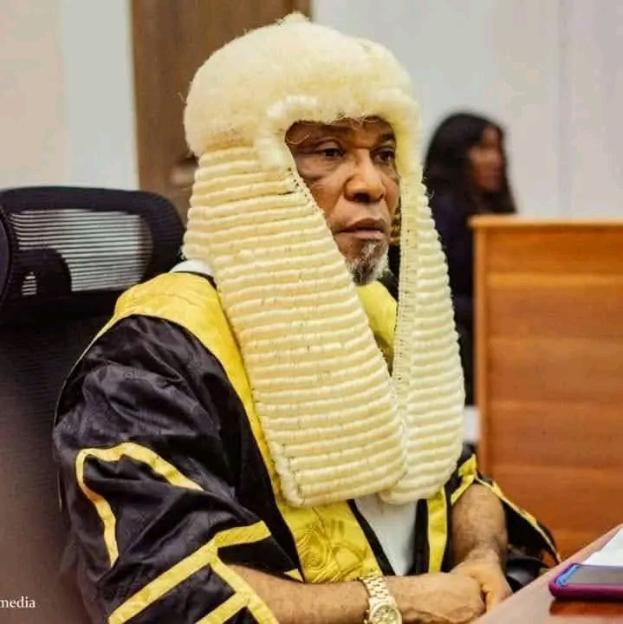The Federal Government is set to build eight state-of-the-art medical simulation centers across the country to enhance medical education and training.
To oversee this initiative, the Minister of Education, Dr. Tunji Alausa, has inaugurated a 19-member Implementation and Monitoring Committee for Medicals Simulation Centers, chaired by renowned neurosurgeon Prof. Wale Sulaiman.
The simulation centers are designed to provide a realistic and immersive learning environment for medical students and healthcare professionals, allowing them to practice and hone their skills in a safe and controlled setting.
This initiative aims to improve patient safety, reduce medical errors, and increase the number of skilled healthcare professionals in Nigeria.
Inaugurating the committee on Wednesday, Alausa noted that the findings of the ad-hoc committee revealed that medical simulation centers are virtually non-existent in Nigerian medical institutions, and modern training tools, such as virtual patients and telemedicine platforms, remain underutilized.
To address this gap, the Minister charged the committee to finalize the proposal, ensure compliance with goals and objectives, oversee implementation, and develop quality assurance measures and standard operating procedures.
“Specifically, the terms of reference of the committee are, number one, work on the finalisation of the proposal to set up approved medical simulation centres to create a clear roadmap to the actualisation of simulation centres within the specified time frame. Number two, ensure compliance with the goals and objectives of the simulation centre. Number three, work with selected institutions on the set-up of simulation centres.
“Number four, oversee and monitor the implementation of simulation centres across the country to ensure compliance with expectations. Number five, provide project management oversight of the simulation centres. Number six, develop modalities for implementation of other recommendations from the reports submitted by the Teflon committee on medical simulation.
“Number seven, develop and implement quality assurance measures and standard operating procedures for simulation centres. Number eight, develop detailed key performance indicators for the simulation centres and institutions. Number nine, may engage the external support and expertise that are not readily obtainable within the committee, including technical support, consultants, and others,”; he said.
The Minister, who noted that the committee was carefully selected, added that membership of the committee “is one initial appointment of a three-year term, enabled for another three-year term as needed.”;
“So, they’ve carefully added additional members. We’re starting with eight simulation centres, which is quite good,”; he noted.
The committee will also ensure financial sustainability through social mobility models and align medical schools and teaching hospitals.
The Minister emphasised the importance of ensuring that the centers are self-financially sustainable and urged the committee to develop modalities for implementation.
“You also have to oversee the process of setting up a centre itself. Obviously, the procurement will be done by the individual institution based on tech fund standard, but those standards, you have to vet it and ensure that it meets the world class simulation centre standard. But the big thing is that once it’s fully done, how it becomes financially sustainable.
“And also, you need to work on the alignment between the medical schools and the teaching and school because they are going to play for a fight. You have to be clear.
“Please make sure you do a 360 degree of how this thing will go so that we can build more. We’re are starting with eight now. Next year, there will be more funding so that literally all the medical schools and teaching houses will have simulation centres,”; he said.
Earlier, the Executive Secretary of the Tertiary Education Trust Fund(TETFund) , Arc. Sonny Echono explained that medical simulation was a cornerstone of modern medical education which is widely adopted in developed countries to train both students and practicing professionals.
“Our universities will greatly benefit from these interventions; they can use the simulation centers not only for training but also as hubs for innovation, developing and testing new medical devices, protocols and training models. This initiative will ultimately transform our institutions into living laboratories for healthcare advancement,”; he said.
He expressed gratitude to the minister for his unwavering support and commitment to TETFund and all its interventions.
Alausa also noted that the establishment of these simulation centers is a crucial step towards achieving the Federal Government’s vision of making Nigeria a hub of medical excellence.
He expressed optimism that the centers would not only improve the quality of medical education but also contribute to the development of the country’s healthcare sector.
Also speaking, the Chairman, Board of TETFund, His Hon. Aminu Bello Masari, expressed hope that with the caliber of members in the committee, they will deliver on the important assignment.
Chairman of the committee, Prof. Wale Sulaiman, assured that the committee would work diligently to ensure the successful implementation of the simulation centers.
He emphasised the importance of collaboration and stakeholder engagement in achieving the committee’s objectives.







